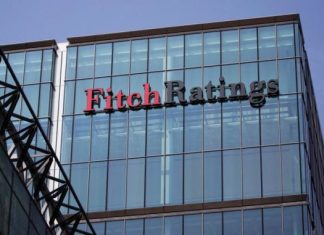

The Major Energies Marketers Association of Nigeria has stated that ethanol could be adopted as a biofuel to help Nigeria in reducing energy poverty and emissions.
According to MEMAN during a recent quarterly press webinar and engagement, about $7.4bn could be saved annually by taking advantage of Nigeria’s ethanol resources as a biofuel to support petrol.
Ethanol is a biofuel that is commonly used as a substitute or additive to petrol in vehicles. It is typically produced through the fermentation of plant materials like cassava, corn, sugarcane, and others.
MEMAN noted that ethanol blended into biofuel as a transformative energy source has the potential to change Nigeria’s energy landscape and pave the way for a sustainable economy.
Experts, who spoke at the webinar, revealed that Nigeria had what it takes to exploit its ethanol to biofuel potential.
Presenting a paper titled ‘Ethanol as a Biofuel’, a Senior Consultant with Africa Practice, Agwu Ojowu, pointed out that developing the ethanol industry could save the nation about $7.4bn ba year.
“Nigeria’s cassava production, standing at 63 million metric tonnes annually, represents 26 per cent of the global total. However, with 40 per cent of this yield lost each year, there is a significant economic loss estimated at $7.4bn. Developing the ethanol industry could mitigate these losses, enhance economic stability, and capitalise on the depreciating currency to reduce costs,” Ojowu stated.
He emphasised that ethanol’s higher octane rating improves fuel quality and helps meet environmental standards by reducing sulfur content and greenhouse gas emissions.
Those attributes, he said, make ethanol a cost-effective and environmentally friendly alternative to petrol, aligning with Nigeria’s climate commitments.
Going down memory lane, Ojowu recalled that Nigeria’s foray into ethanol began with the 2007 biofuels policy, which mandated a 10 per cent ethanol blend in fuel.
“Despite initial challenges, including the suspension of the policy in 2008, because of blending inconsistencies, the potential of ethanol remains significant. Ethanol’s cost-effectiveness compared to petrol has historically led to economic arbitrage, suggesting that a well-regulated biofuel market could be economically advantageous,” he said.
Ojowu added that ethanol presents numerous benefits, including economic, environmental, and agricultural advantages, without necessitating vehicle modifications.
The Executive Secretary of MEMAN, Clement Isong, also emphasised the role of renewable energy in addressing Nigeria’s energy poverty.
He highlighted the importance of diverse energy sources, including biofuels, solar, hydroelectricity, and wind energy, to create a balanced and sustainable energy mix.
“MEMAN is committed to engaging with industry stakeholders to advocate for energy solutions that meet Nigeria’s needs,” Isong said.
He expressed optimism about the future of renewable energy in Nigeria and the continued efforts to enhance press engagement and industry collaboration.
Join Television Nigerian Whatsapp Now
Join Television Nigerian Facebook Now
Join Television Nigerian Twitter Now
Join Television Nigerian YouTUbe Now





